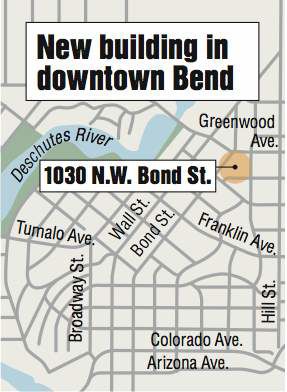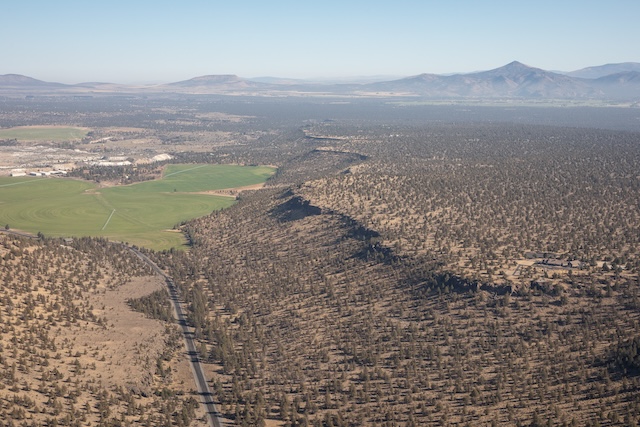New building for downtown Bend?
Published 5:00 am Friday, October 22, 2010

- New building for downtown Bend?
Downtown Bend could see construction on its first new building in nearly three years now that the city has deferred a hefty financial burden for developers.
Bend developer Doug Knight said Thursday he hopes to break ground within six months on a two-story, 14,000-square-foot mixed-use structure at 1030 N.W. Bond St. next to the Deschutes Brewery Public House. The building will include both a restaurant and office space.
Knight wouldn’t say what businesses might move into his development, but noted he was in discussions for both the restaurant area and offices.
“I’m in tenant negotiations, and I’m not able to share anything more than that,” Knight said. “But it’ll be a very exciting project, no doubt about it … We haven’t shown a lot lately in terms of (economic) health.”
Last project in 2007
The last new construction to start downtown, according to the city, was with Putnam Pointe condominium project at 750 N.W. Lava Road in 2007. Building permits for Knight’s project are now under the city’s review.
Knight said that while the downturn in economy has stalled his efforts to move ahead with his project for at least the past four years, a new city program aimed at deferring parking fees will cut down on his initial expenses and could spur more development downtown.
For every new building that’s erected in Bend’s downtown, the city charges $21,340 per 500 square feet of floor space to help offset the impacts to parking. But on Wednesday, the Bend City Council approved a new program that will allow developers to defer this cost for up to a year.
This program is similar to another one the city started in 2008 to help builders with system development charges, or SDCs, which are the fees developers must pay to offset the impacts to the sewer, water and road systems.
Knight, who is a city planning commissioner, said he initially thought the parking fees were part of the SDCs and therefore qualified for deferral. When he learned otherwise, he went to city officials and asked if there was a way to fix what he considered amajor oversight.
“I just called to light that this was an egregious error,” he said. “It’s not just for my project. It’s for the health of downtown Bend.”
For his own development, Knight needed to account for 22 parking spaces, which would cost him about $470,000 in fees. This price is about one-third of the total estimated cost of his $1.4 million project.
While Knight was able to offset most of that cost by carrying over some parking spaces he already paid for with the previous building that was at the property, he said not everyone who wants to build downtown will have that luxury. With such a “huge sum of money” built into the upfront costs, he said it could push developers to other parts of the city.
“What we don’t want is for development to go to the periphery of the community,” Knight said. “That’s the classic urban sprawl equation where all the capital has gone to the subdivisions or bedroom communities … It’s important that we encourage healthy urban infill and redevelopment in urban cores.”
Developers will be able to start deferring downtown parking fees as soon as Dec. 1, and the program will run through Nov. 30, 2011.
Eric Strobel, the business development manager for Economic Development of Central Oregon, isn’t sure how much more building will occur as a result of the deferral program. He said it will likely help people like Knight, who were waiting to build downtown but didn’t want to pay that initial parking cost.
“It’s like a lot of incentives. It could be that one little straw that could make a project happen,” Strobel said. “You could liken it to a lot of these leases going on right now where you get two or three months free. It’s like a good little hook, so it gets people to make that decision.”
According to Bend’s Downtown Manager Jeff Datwyler, the fees go into a city fund to pay for future downtown parking needs, such as another covered garage like the one located at the corner of Lava Road and Minnesota Avenue. He said that fund currently has more than $600,000 in it, and at this time there’s no need for more parking downtown.
“Just from observations and day-to-day observations, we’ve got capacity now,” Datwyler said. “We’re not to the point where we need more parking structures.”
The reason parking spaces are estimated to cost so much, he said, is because of the expenses associated with building and maintaining a parking garage. The wide-open space means the support structure must be well-designed and engineered, and there are other costs for things like ventilation, elevators and parking enforcement.
For instance, Bend’s downtown parking garage that opened in 2006 has more than 500 spaces, and cost around $9.7 million to build.
“It’s very expensive,” Datwyler said. “It’s a lot more than just a concrete building.”






